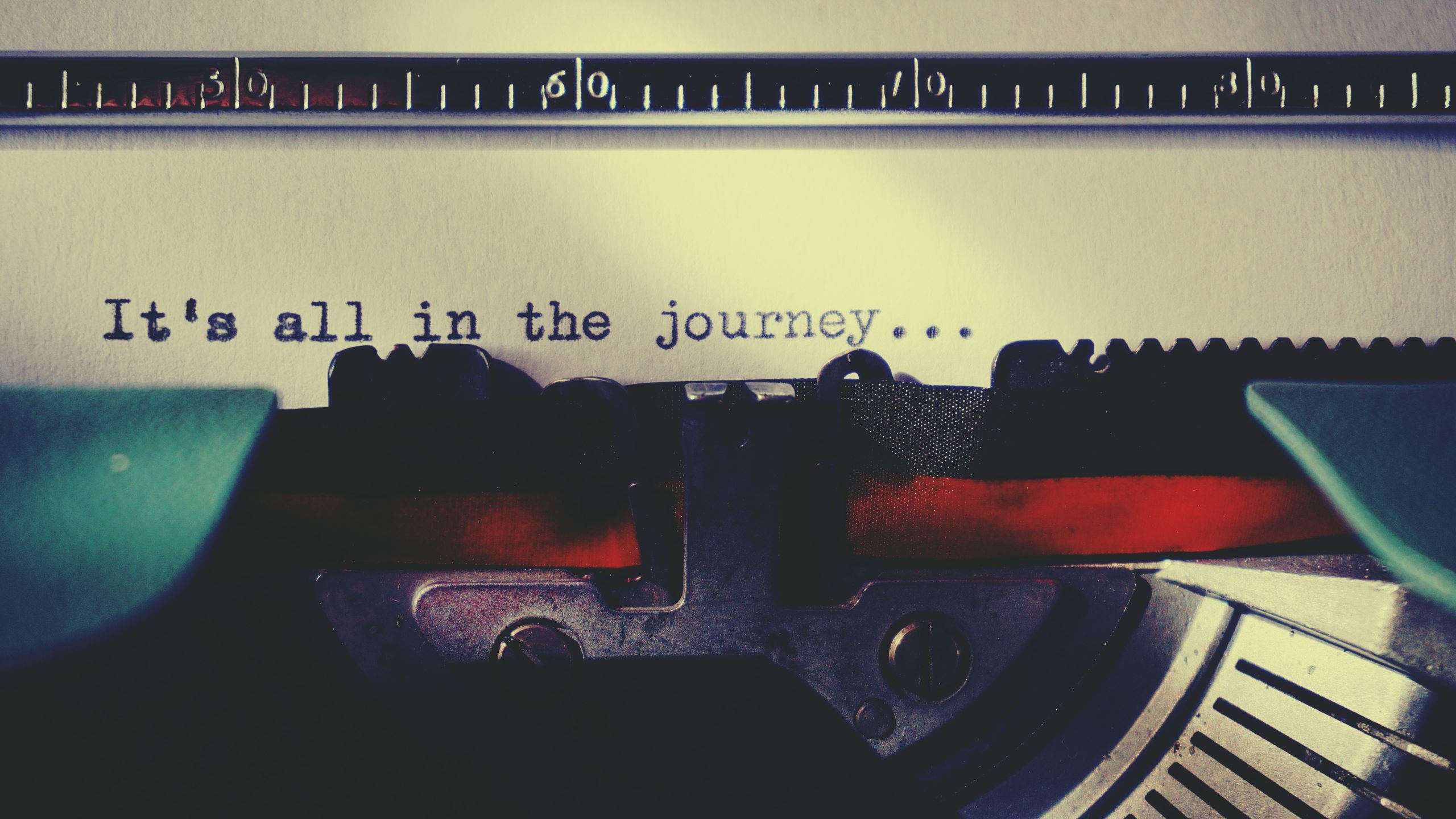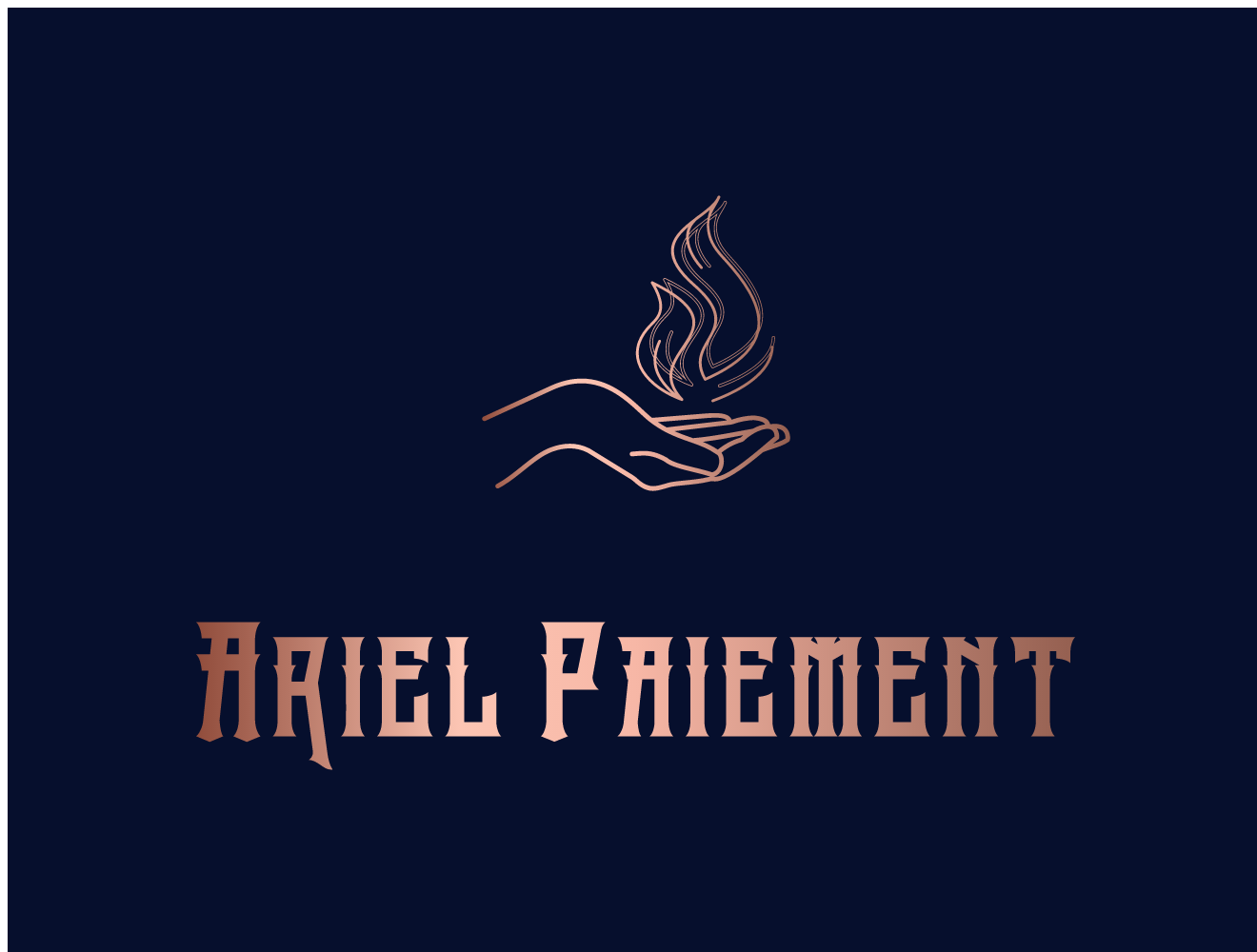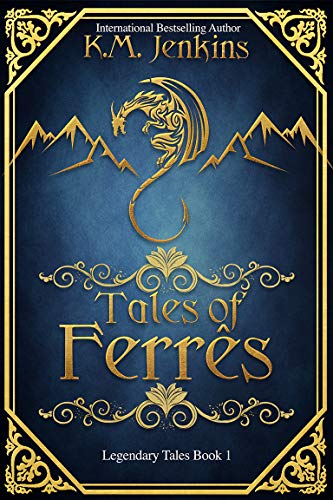Introduction
First, let me say up front that this is from an American perspective on America. It isn’t written with other countries in mind because their history is different, and I’m not as familiar with the global history of racism and division as I am with the history of it in the States. Second, let me also state this: my opinion probably won’t be popular, but it is based on all of the reading I’ve done on the topics, research into what those who were involved in the events I’m going to highlight had to say, and the trends I see that have started back toward our country’s beginning and have continued to come to light.
Having an Opinion on the Matter
If you listen to some people today (including both colored and white people), non-colored people are not allowed to have an opinion or pass judgment on anything that half of our country is doing simply because of skin color. This contains a fundamental flaw in my opinion.
What is that flaw? The idea that somehow skin color makes us different. Oh, I know people say we’re all the same even if we have different skin coloring, but all evidence stands to the contrary in so many cases. Our country as a whole says one thing and does another. But what they’re saying is in fact the truth! Both white and colored are human beings, and we are all affected by what the other group does because we live in the same country, the same neighborhoods at times, and face varying difficulties based on how the other group responds to us. If we believed this in practice, not just in what we said, then we wouldn’t have the issues we do, or at least, not in the same way as we do.
Historically, black, Hispanic, and Asian communities have faced unjust and in some cases illegal persecution. The white community has affected them in this way, and it is without a doubt wrong. However, with all of the rioting going on, which has not only been aimed toward the police and a corrupt system but also toward stores, business owners, and individuals who had nothing to do with the issue people are supposedly protesting, white communities also live with fear and despair now. Further complicating the issue is that the rioters are only a small piece of the black community or, in the worst cases, aren’t POCs at all but are trying to give them a bad name. This has resulted in an enormous amount of fear incorrectly leveled at an entire group of people who often have done nothing wrong, don’t agree with the violence, and only want their voices heard.
Some would argue that it’s a sort of poetic justice that whites now have to live in fear because of what some small segment of the black community (or those looking to make the black community look bad) is doing in response to years of oppression and mistreatment. I would argue it only compounds the problem because it only breeds more hurt, fear, and resentment, and it solves nothing. But more on that and why I’m saying that later.
Why I Believe Everyone Should Have An Opinion
In the end, I believe every one should have an opinion on this matter, no matter what color they are. We’re all part of the human race, and we should get very angry when another part of the human race is unduly punished or persecuted simply because of color. To say that half of our country shouldn’t be allowed a voice (whether white or black) simply because they are not the other color is inherently flawed because we’re all going to affect one another in how we act. Only a self-centric view of yourself and those around you would lead you to believe that someone who is a different color than you cannot have an opinion on your actions simply because they are a different color. Let’s not do that to anyone.
Friends who are of color? You guys have every right to be angry and devastated over what has been happening to you. It’s wrong, and I’m so sorry you have had to live with the injustice, persecution, and fear that has been inflicted on you. But white friends? You guys can have an opinion too. If you’re sitting there saying that everything that’s happening is fine and you don’t understand why anyone would need to protest, even peacefully… Well… That’s your opinion. It’s one that’s, politely, very head-in-the-sand and very inaccurate, but it is your opinion. For those of you who, like me, agree change needs to happen but denounce the violent rioting going on, you are also entitled to an opinion.
But let’s make sure that while we have our opinions, we’re doing our best to support those who need our support right now. Everyone is going to suffer if the violence continues, most of all our black communities because the violence is only going to lead to further fear and brutality in response from our police departments. If we’re not all working together to bring change, to speak out against what’s going on where we’re able, and to shape the next generation to think differently than our own has, then we are part of the problem no matter what color our skin is.
Let’s Talk History – The Revolutionary War
To start off with, we need a brief discussion of the Revolutionary War. Why is this relevant? Because so few people actually know anything about our history, if discussions going around on social media are anything to judge by. People have been comparing the riots and protests to the Revolutionary War. While I do see some parallels, they’re flipped from what people are claiming, which is that the riots on the part of the black community (not the protests, per se, but riots specifically) are just like the colonies fighting for independence from Britain.
This is a misconception on several levels. First, the Revolutionary War was a war of self-defense, not independence. Yup. You heard me right. The war didn’t start until they’d already declared their freedom and had gone so far as to kick out the British governors in favor of appointing their own. The Declaration of Independence was a notice to England/Britain that we as the colonies were opting out of citizenship and as such did not recognize their authority to govern us. It was a peaceful declaration, and war wasn’t implied or suggested by the colonies.
English Law and the Magna Carta
Now, what was the basis for this declaration of independence? The colonies were, up to that point, considered citizens of Britain, but they had specific restrictions as well as liberties given to them because of the charters they had with previous kings prior to King George III. Furthermore, they and every citizen of Britain had specific rights and duties under the agreement made between the nobles (House of Lords), the king, and the people and first signed on June 15th, 1215. This agreement was the Magna Carta, and it was a huge part of English law. Why was it so important? Because it stated that no one, not even the king himself, was above the law. Therefore, King George III was required to treat the colonies as English citizens properly by following the laws and the charters they had.
But King George wasn’t doing this. He decided to do his own thing, and though many appeals were made to point out that what he was doing was in fact a violation of English law and wouldn’t be tolerated if the people of the colonies were living in England itself, he continued to grow worse and worse. The colonies were treated as citizens only when it benefited England but were denied their rights under English law when it didn’t.
So the colonies wrote the Declaration of Independence to, in a nutshell, say “You won’t treat us like citizens unless it suits you, so we’re declaring we aren’t citizens as you’ve ignored every legal appeal made to this point.” And at that point, Britain’s leadership should have said one of two things. Either, they should’ve said, “You’re right. We’re going to fix this,” or “You’re right. We’ll let you go.” They did neither. At this point, they declared a war and decided to treat them like rebellious citizens, though by then the colonies were not in fact citizens anymore. They had made the decision Britain wouldn’t between citizenship and non-citizenship, and Britain forced them to it.
So What?
Why is this important to what’s going on today or to the rest of this article? Because we’re going to talk about the Civil War, where something very similar happened but ended up splitting a nation in two. But it’s also important because people are paralleling the rioting with this event incorrectly. The American Revolution wasn’t started by the colonists protesting. Even events like the Boston Tea Party were not violent. This isn’t to say that they never did anything the wrong way. They were human just as we are, and certainly once the war actually started, individuals made poor choices. But in general, it was peaceful up until Britain decided to attack us. Then it became a war of self-defense (maybe now the comment I made about that at the beginning makes more sense?).
The riots, on the other hand, are not at all peaceful, nor have they been even close to discriminatory in who they drag into the mess. Business owners, cops who did nothing wrong, civilians who happened to be in the path of the violence. Businesses are burned, fires started on playgrounds that were for children of all ages, colors, and abilities, buildings defaced, rocks thrown at fire fighters’ equipment when the men and women manning them are putting their lives on the line to stop fires rioters started.
The parallel I would draw between the American Revolution and the riots is not that the rioters are the colonies rising up against injustice but that they are Britain making a moment of injustice worse. They aren’t defending themselves from a point in time when police brutality is occurring to them or their families. The police haven’t come into their homes or businesses and first attacked them, nor have they done so on the streets.
That has happened, yes, and those who defend themselves from it are right to do so. Those who step in to help to defend others from a current instance of that sort of brutality are also right to do so. When injustice is happening and people speak up against it to say, this is wrong, unjust, and in some cases, illegal, they are acting in true American spirit like our founders did. But when they choose to do so violently, they are no longer the protesters but the aggressors, and we saw with the American Revolution, this exploded into violence, more lives lost than necessary, and a war that never needed to happen.
The Civil War
I know this is getting long, but we’ve got one more important stop to make here, and this one has everything to do with where we’ve ended up as a country today. Now, we’ve all been taught that the Civil War was about slavery and how the blacks were being treated. This is the accepted view, at least in the North. In the South, if you go visit many of their monuments and Civil War national parks, you will see an entirely different picture of what happened, and that’s what we’re going to talk about here.
As a Northerner, I’ve been told many times Lincoln is the best president we’ve ever had and that he was amazing because he freed the slaves. I’m sorry to say to those of you that hold this view that history does not support such a viewpoint or high regard for Lincoln, as I hope will become clear as we begin to examine what really happened in the Civil War. While the South and the North both made mistakes, no doubt, the South was in the right for what they chose to do, though not on the issue that most believe was the reason for the war and their secession.
What was the Civil War About?
The Civil War, while it did in part have to do with slavery issues, was not predominantly about that. Lincoln’s primary motivation was focused on something entirely different, in fact. Now, before you get mad and accuse me of trying to somehow warp history or marginalize the issue of slavery, I’m not saying it wasn’t an issue on the table. But what I am about to share with you is the reason we still have such a strong divide both between North and South and between black and white. Lincoln and the Civil War are the reason. (Yes, I know… He’s one of our best presidents. How can I say such a thing? Well, hear me out.)
Before the Civil War started, the North and the South had been going back and forth on a lot of issues. It wasn’t just slaves. On the issue of slavery, the South objected because their entire infrastructure was based on agriculture, and if they just did away with slaves entirely right away as the North wanted them to, they would collapse. The entire economy would be ruined. Lives would be ruined. And it wasn’t just that the plantation owners stood to lose. Everyone did.
Part of the issue in question was what to do with all of the slaves once they were freed. Should they be shipped back to Africa to an environment where warring tribes very often sold those they’d captured from a rival tribe to the slavers? Or should they stay in America? If they stayed in America, what would be done to take care of them? They didn’t have any trades, they weren’t educated, and the system couldn’t handle the strain of trying to support all of them. In fact, the situation was such that many freed slaves with masters who treated them well chose to remain on the plantation to work as they had in exchange for food and board because their entire life was on that plantation. Is it right that the system was such? No, of course not! But the situation was complex and multi-layered, and the North tried to act as if it was not in many cases.
Where was the North coming from? Well… You know how we say whites who have an opinion against violent protests on black rights are coming from a place of white privilege? The North was coming from a place of privilege in this case. While they were right to say that the slaves should be freed, they stood to lose nothing at all if the slaves were freed. In fact, in some ways they stood to gain. The North was mostly industrial with little to no agriculture. They didn’t rely on slaves to keep their plantations going, and they were more than happy to hire freed blacks to work in their industrial sites for cheap wages. So if all slaves were freed all at once, the South could go down and the North wouldn’t suffer.
Bigger than just one issue?
But the issues that led to the Civil War were greater than just one issue, however awful that one issue might have been. The North had begun to completely cut the South out of the equation. The abolitionist movement was gaining sway in the North, and they were trying to enforce their laws and regulations on the South slowly but surely. Every new state that joined the Union was a battle between not just slave and free but industrial vs agricultural. The South was justifiably worried that if the North won most of the States and also allowed the blacks to vote, they would lose any and all say in what was going on. The fear ran deeper than just the surface matter of slaves to what would happen if the North gained enough force to push whatever issues they pleased.
Then the North wanted them to start paying every slave they owned to work? They couldn’t afford to pay their slaves in addition to housing, feeding, and clothing them too, something most already were doing to one degree or another (some better than others, sadly). The anger just burned hotter and hotter as their every concern was dismissed or they were accused of trying to encroach on Northern state rights in the process of protesting the slow walk toward the death of their own.
The South was angry. They tried many times to appeal what was being done. Granted, the majority of the surface fighting was about whether or not the North would return slaves to their owners, something the two sides both agreed was required by the Constitution. But it ran so much deeper than that. It was predominantly a fight between class: rich, upper class against middle class against slave. And it wasn’t just the South dealing with this. It was the North too.
The loudest voices in the South were those of rich plantation owners, all of whom stood to lose a great deal. The smaller plantation owners who grew most of the food supplies often didn’t own slaves, but they still chose to side with the South on the issue, though not all did. A huge mess was brewing on all sides, and it would erupt into a civil war when the people had had enough. The South was afraid that the rising distaste for slavery, something their society really wasn’t able to function well without, would result in an extreme disadvantage for them all the way around. If slavery were to be removed, it would have to be gradual to avoid a full infrastructure collapse, which is what both sides had initially agreed would be the case. The North, however, changed its mind as its landscape and its own issues began to change the situation.
But Congress and the leadership wouldn’t listen to the South. Compromise was a thing of the past, but it would not be a part of the future it seemed. They favored the North, who had more people, more voices, and more pull. And the South got fed up with it. (Sound familiar… Kind of sounds like the colonists who weren’t being given their rights by England.) Essentially, the North was bullying the South and only acknowledging them when it was convenient. They were taking advantage of their own countrymen, and the South eventually snapped when Abe Lincoln showed up on the scene.
Why Was Lincoln the Gas to the Fire?
Lincoln was a staunch Whig and definitely was not in favor of the South. When he was elected, the South saw the death of their hopes. They felt that, with Lincoln as president, they would lose any semblance of a voice they still had. And they were right.
December 20th, 1860, seven of the Southern states seceded in the Lower South. Sick of the tyranny and hostility of the North toward them, afraid of losing everything (not just their slaves) if it continued, and looking for independence, they declared themselves to be the Confederate States of America and set up their own government in Montgomery, Alabama. This wasn’t a war over state rights, just as many have said, but it also wasn’t a war against state rights. It was one group of people fed up with the attitude and treatment displayed toward them walking away, which was at the time an option the Constitution neither affirmed nor denied. At this point, there hadn’t been a war and had been no overt violence, just as had been the case with the American Revolution.
Lincoln had the same choice that George III had: let them go, make amends and treat them appropriately, or start a war. Once again, our country faced a situation where a war of self-defense would be fought. The Southern states had declared their independence, which was, according to the Constitution we had, their right to do. They hadn’t done anything illegal in doing so. They should have been allowed to go.
Instead, the North began a war. Between December 20, 1860 and June 8th of the next year, more Southern states would join the Confederacy until a total of eleven states had joined. On April 12th, 1861 the Civil War began with the Confederate bombardment of a Union fort (Fort Sumter) that was in Confederate territory. This was the result of Lincoln’s decision to send supplies to the fort soldiers, who were running low. His move, to the Confederates, appeared to be one of war. The US President was stocking up the fort and fortifying it, and since it was in their territory, they viewed it as an act of aggression.
Why Would the South See It As An Act of Aggression?
Previous to this point, Lincoln, who had been elected without the vote or approval of a single Southern state, had in his inaugural address made it very clear how he felt about their secession and their “rebellion”. Lincoln himself admits that “Apprehension seems to exist among the people of the Southern States that by the accession of a Republican Administration their property and their peace and personal security are to be endangered,” in his address. His statement to those who wanted to leave? “If the United States be not a government proper, but an association of States in the nature of contract merely, can it, as a contract, be peaceably unmade by less than all the parties who made it? One party to a contract may violate it–break it, so to speak–but does it not require all to lawfully rescind it?” In other words? The North refuses to let you go.
At the time, to Lincoln’s own admission, there was nothing in the Constitution that said they couldn’t depart. But he stated that it was implied that the Union was to continue into perpetuity simply because no other government established at that time operated with any other intent (until, of course, there was a Revolution and people set up a new government, but Lincoln conveniently ignored that). He argued that the intent behind the Articles of Confederation in 1788 (which predated the Constitution) and the Declaration of Independence was perpetuity and that, if the goal of the Constitution was “in order to form a more perfect Union” as it had been stated, then perpetuity must be the legal expectation of all involved parties as it wouldn’t be better than the Articles of Confederation or the Declaration of Independence if not.
The Flaws in Lincoln’s Argument
The flaw with this of course is how one defines “more perfect”. If by more perfect you mean that you give no legal recourse for abused parties to declare their independence, just as England had tried to do to the colonies, then yes, Lincoln’s assumption would have been correct. Unfortunately, our Founding Fathers and those who drafted the Constitution fully understood that abuse of power by a central government was all too common and easy. They had seen it first hand, and they did all they could to avoid it. Each draft of the Articles and later the Constitution were revised to do everything possible to keep a strong central government from abusing some or all of its people.
That was the goal, not an afterthought, and so Lincoln’s argument went against what the Founding Fathers themselves had done and their goals in drafting our Constitution. They would have supported the South in declaring non-citizenship in the Union as the South wasn’t being treated like a full citizen by the time of the secession. The South followed in the footsteps of the colonies, who declared non-citizenship in response to England’s repeated ill-treatment of them.
So when Lincoln sent the ship to stock Fort Sumter without asking permission to travel into the territory of what had become another country, that country’s citizens, who had already been sent a clear message that Lincoln would use whatever force necessary to keep them in the Union against their will, retaliated against what was to them a clear sign of aggression. After firing on the ship and chasing it off, they chose to also fire on the Fort and so began the Civil War. But without Lincoln’s inflammatory remarks, clear disregard of the South’s decision to leave a Union which had mistreated it time and again, and choice to ignore the diplomacy that would be required to supply a military station in a hostile country this event that began one of the most horrific wars this country has faced might never have occurred.
Was the South Right to Fight the War?
From all that I have learned about both sides, I would say that neither side was fully in the right. On the one hand, the obviously right thing to do would’ve been to free the slaves, just as the North was saying. But on the other hand, the North had no right to force the South to stay and under the Constitution, they had no right to abolish slavery in the South against the will of the South.
What makes the Civil War such a nasty event is that it really brought out all of the issues facing our nation, and I don’t mean just the racism that was going on. The South, as I said earlier, was divided between four groups, roughly. Rich plantation owners who only grew what would make money and ran roughshod over regular, middle class farmers, middle class farmers who sided with the Union, middle class farmers who sided with the Confederates, and slaves who were being used by both sides as a tool (more on that in a minute). Many families were split because some of their men chose to defend their families and their homes as the Union overran the South, which was fighting a primarily defensive war strategy wise, while others of their men chose to join the Union. This was scene most predominantly in border states where father turned on son and brother on brother when the war really got under way.
But the North was equally full of issues. They were less apparent in their racism, and when the war was made about slavery in the last half, they appeared to be the righteous party. They were not. Their divides were between upper class businessmen, blue-collar and union workers, minorities, free blacks who were afraid of violence from the whites, and whites who were afraid they’d go hungry and jobless because of the influx of freed or runaway slaves taking up jobs faster than they became available. To top it all off, the North was already flooded with immigrants before all of this happened, so adding the new people taxed their economy further since they couldn’t send them back to the South to work on plantations.
Food became scarce as the crops in the South were destroyed, and people on both sides who didn’t have money went hungry. The fears that the South had of what would happen if all the slaves were freed and how they would find work, be cared for, and paid? The concerns that had been raised surrounding how the economy could survive an abrupt freeing of the slaves were all coming to fruition in the North, but they still wanted to push the South into a similar situation and even force the issue when the South seceded.
How the War Added to Our Racial Tensions
Prior to the war, there was a definite argument over the way slaves were treated, whether they should be freed or not, and how the matter should be handled in the first place. Both sides were fired up about it, but there was one group that was relatively left out on the matter if they were included at all: the blacks themselves, both free and slave. Some were writing books (such as Harriet Beecher Stowe’s Uncle Tom’s Cabin, which highlighted the moral wrong of slavery but also showed slavery in all forms) that spoke out against it. Some were speaking up. But their voices were mostly unheard.
Most slaves and freed slaves working on plantations didn’t have an education. They weren’t included in what was going on. And yet those around them held a view of them that was a mix of fear and prejudice in so many cases, both in the North and the South. The situation wasn’t good, but it wasn’t nearly as bad as it was when the war started and then afterwards. Why is that?
Well, when the Civil War started, both sides used the black community and the slaves of it as chips in the dispute. On the Southern side, there were rules about the draft that allowed wealthy slave owners to avoid the draft if they owned a certain number of slaves. On the Northern side, they were not enslaving blacks, but they also didn’t give blacks citizenship in many cases and viewed them with suspicion and mistrust.
Then, when the North was losing the war and many Northerners wanted to just let the South go, Lincoln was seriously concerned he was going to lose the next election. So he came along with his Emancipation Proclamation which did nothing to help any of the official slaves because all of them were in the South, and until the North won the war, there was no way to enforce such a proclamation. Nonetheless, his proclamation changed the tenor of the entire war. It was no longer about the Union and preserving it, as Lincoln himself said it was in the beginning. It became about freeing the slaves. And when the North’s general, Ulysses S Grant, won several major victories for the North, they were revitalized in their holy fervor that the war should be fought to end slavery now. As the victors write the history books, the North was immortalized in their version of events as the ones who freed the slaves.
Where did it really lead?
The Civil War ended with the South devastated. Much like World War I would later leave Germany devastated and lead to the rise of Hitler, the Civil War and the way the North treated the South afterwards led to intense hatred between North and South and, worse still, led the outraged, hurting white communities who had been mistreated by the elites and the rich plantation owners in both the North and the South, turning their anger on the newly-freed slaves who would now compete with them for jobs in a failed economy. The North made it still worse by essentially leaving the South to fix its own problems. But when it became clear the South was going to implode with the hostilities between blacks, whites, rich, and poor, the North came in and forced everything to straighten out.
Only they didn’t actually make anything better. In both the North and the South, racial tensions continued to rise. Black communities were mistreated (at best) and slaughtered and oppressed in most cases. The fear, hatred, and blame left in the wake of a war that is widely known as America’s deadliest war compounded into rioting, looting, straight up murder of blacks because the South couldn’t punish the ones they blamed most of all, and tensions that still exist today between both North and South and black and white.
Why Does any of this Matter?
This matters because if we don’t understand and know our own history and that of the world around us, we are bound to repeat it! And that is what we are doing. Only this time, instead of rioting from oppressed laboring classes and poor farmers during the Civil War, we have segments of the black community rioting. Unfortunately, the way things are going, we have the brewing of round two of the Civil War happening. It will be no less deadly than the first, and lives of all colors will be lost. They already are being lost. Good people on both sides will die. We can’t stop it by rioting any more than those who rioted during the Civil War and after it fixed racial and class tensions or stopped brother from fighting brother.
If we want to stop it, the solution is solidarity. It was the one thing that those involved in the Civil War did not have. At every turn, there was only dispute, dissent, and fury. Had both sides come together and found a solution that prized both what was right and what was best for all parties involved, the war could have been averted. Instead, Lincoln further polarized the issues between the two sides, the people on all sides fought between themselves, and no one truly presented a united front.
In the end, while the solution will require all of us to work together as the people to send a clear message to our leaders and those in power that we will no longer tolerate this, violence does not send that message. It did not during the Civil War era, and it will not now when we are dealing with many of the same issues our ancestors did. Just as the violence and war created a stronger problem with racism, suspicion of immigrants and freed slaves, and class segregation, another war now will do the same. Perhaps it might reverse the roles. Who knows? But whether it reverses roles or not, our country will be worse for it, not better.
If we want to avoid repeating history, we all need to do our part, however small it might seem, to put an end to injustice in ways that are legal, non-violent (unless it’s a clear issue of self-defense, in which case, it’s clearly okay to fight back), and we need to promote the understanding that at the end of the day, we are all human. It doesn’t matter what color our skin is, and if people are trying to segregate and separate based on that, we should correct that behavior, but we should do it in love. If we correct the opposing side’s wrong views of other people in an insensitive, unkind, and unloving manner, we’re only going to further entrench them in their wrong views. Instead, we must confront them with a reality that is consistently different than what they think it is. Love, kindness, and consistency go much further than rioting, looting, and killing, which only serve to confirm opinions on the black community that are harsh, unfair to most people in the community, and extremely prejudiced.
Further Resources
These are some of the sites and sources I used to look into the Civil War and the issues behind it. I quoted directly from Abraham Lincoln’s Inaugural Address, which you can find here.
History.com
Battlefields.org
Essentialcivilwarcurriculum.com (Discusses the class conflicts and racial divisions. While I don’t agree with all of the things they’ve said about the Civil War being predominantly about slaves or it being a war against State Rights on the part of the South, I do believe they’ve done an excellent job explaining the tensions in both sides before the war even got started. Those tensions only further deepened and exploded during and after the war.)







